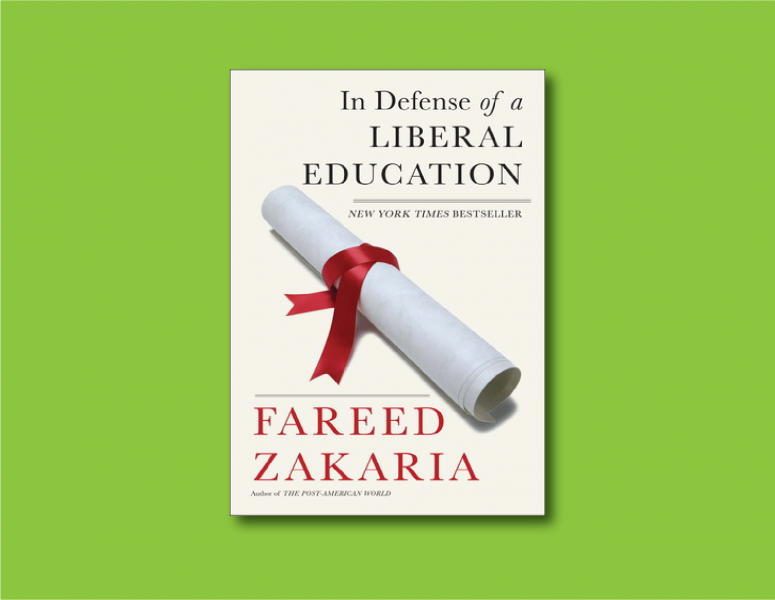
By Hugh Winig, M.D.
Dr. Winig is a retired psychiatrist and a longtime OLLI @Berkeley member and volunteer
Writing a review of In Defense of a Liberal Education by Fareed Zakaria for my OLLI @Berkeley fellow students is a bit like “preaching to the choir.” Most of us are already complementing our earlier educations, which may or may not have been career driven; and we are learning as we age with a focus of broadening our horizons for the pure pleasure and satisfaction of doing so. But Zakaria’s book is so on target that it may be helpful to both reinforce this concept in ourselves as well as transmit it to the generations following us who could use guidance in choosing where and what to study after graduating from high school.
There are several major problems facing high school students today as they reflect on how best to pursue a higher education. These issues often come from being raised in a materialistic and overly competitive society and/or family, rather than each individual feeling empowered to understand their own needs and develop into their own authentic selves.
Choosing what and where to study based on societal and parental pressures can often negatively impact late teens from being able to discover themselves and reflect meaningfully on the world around them. This book insightfully discusses the importance of a liberal education and not just train oneself for a profession in which one can earn a good living. The college years may be the last chance before retirement to extensively delve into literature, history, the arts, music, anthropology, social sciences, theology, and philosophy, as examples.
The approach of today’s college students might even cause some of them to lose the ability to reflect on the meaning of their lives or enjoy their careers, as they pursue only pragmatic goals. Learning how to think, reflect, contemplate, as well as understand the complex aspects of our human condition is critical to initiate in the formative years during college. If handled correctly, the benefits of a liberal education can contribute to a more enriched and meaningful existence throughout one’s entire adult lifetime.
No matter how high an achieving person may be, or how high an income one may earn, understanding the world one lives in and having a cultural and intellectual life enhances the quality of that life. For us OLLI students, having the opportunity to experience a broad range of liberal education options at this latter stage of our lives involves no requirement other than simply taking whatever classes you feel would enrich your life.